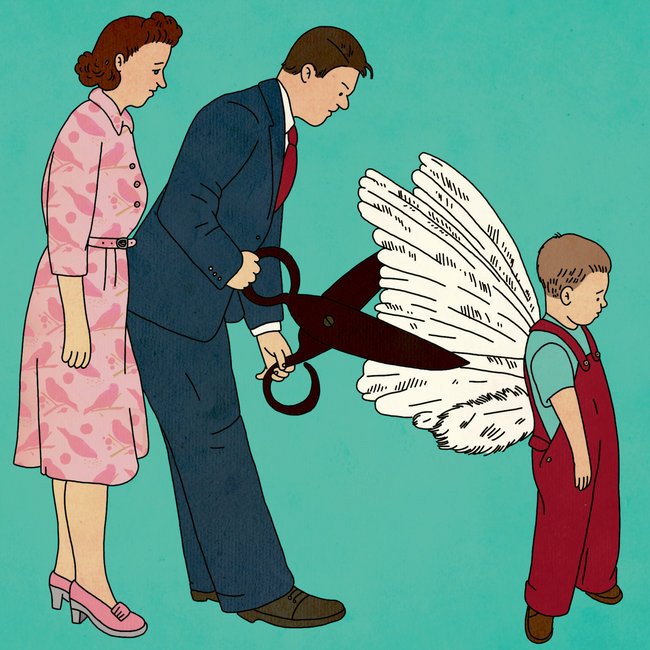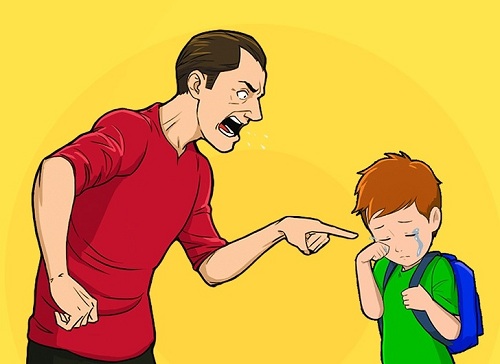The environment in which a child grows up during their childhood will have an impact on their life, and the personality of the child will determine how their life turns out and what it looks like in the future. Regardless of whether the family is rich or poor, the way parents raise their children largely determines their children’s lives. If you are currently teaching your child in the following four ways, parents should pay attention to making changes.

1. Emphasizing the child’s weaknesses
Each child has their own unique personality. There are children who like to play music and sing, but there are also children who enjoy reading and learning languages. These passions depend on the preferences of the children. Instead of imposing their opinions on their children, parents should let their children make decisions about their own lives, and parents should only be there to support and advise their children.
All professions deserve respect nowadays, whether it’s being a doctor, engineer, teacher, electrician, delivery person, or janitor… they are all making an honest living. When having a child, everyone hopes for the child’s health, so parents should not impose their own pressure on their children, so that the child can live a happy and fulfilling life.
In addition, if parents discover that their child has a special interest, they should support and nurture it. I myself used to have a passion for drawing, but my parents forced me to study Math. During class, I couldn’t really think about numbers, I only wanted to draw. In the end, I wasn’t good at Math and I didn’t have a chance to develop my passion for drawing. Gradually, I became more timid and afraid to do anything because I was afraid of making mistakes or not being good enough…
Many mothers tend to be critical and uncomfortable when they see their child is not as good as friend A or friend B, which leads to a negative comparison attitude within the child.
2. Forcing the child to unreasonably give way to younger siblings
Parental favoritism not only affects the child’s psychology in childhood but also creates issues regarding behavior and personality in the future. A child who is neglected by their parents will feel resentful, hatred, and bitterness, and may even despise their older or younger siblings.

Children always need love, care, and respect; they need to be treated as equals to their siblings. No matter who the child is, parents need to be fair in their upbringing and take care of them attentively. Studies have shown that children who are not loved are prone to feelings of resentment, anger, and are more likely to experience depression.
Therefore, parents should be subtle in their actions and words to avoid hurting the child. Sometimes, the child may want to be hugged, carried, or taken out to play, and the mother should try to fulfill those needs so that the child feels cared for and loved.
Furthermore, parents should occasionally spend some private time with their eldest or eldest daughter by entrusting the baby to their grandparents to take the child out to play. This helps the child feel that their parents are always concerned about them. Don’t let the child suffer from frustration or resentment just because parents treat them unfairly or favor their older/younger siblings more.
3. Having the habit of hitting/scolding the child
There are times when we lose our temper and become angry with a certain behavior of the child. In such moments, we often yell and even physically hurt the child in order to make them remember and not repeat their actions. But the truth is, the child will still repeat that behavior despite your repeated scolding, physical punishment, or blaming.
– Creating a vicious circle of violence. Using verbal abuse or physical violence as a way to discipline the child is a sign of lacking skills and self-control for the parents. It unintentionally teaches the vulnerable brains of children that inflicting pain on others by hitting or inflicting emotional harm through hurtful words when they are frustrated or annoyed is acceptable, even to those they love. Instead of being a disciplinary tool, it becomes an encouragement for violent behaviors in children. As a result, children often learn violent behaviors with their friends and become a violent spouse in the future to those they love like their spouse/children.
– The lack of self-control when angry and the loss of 70% of rationality. Therefore, it can cause serious consequences. Physical punishment or verbal abuse can cause irreparable harm to children, especially those under 18 months old.
– Verbal abuse of young children is also as “toxic” as physical violence. Children who are frequently scolded and scolded will develop the behavior of scolding others, and they may also suffer long-term psychological harm similar to being physically beaten.
4. Parents overly authoritative, making decisions for everything
In some families, many parents have extreme and strong personalities and always act according to their own will because they believe it is the best thing for their children without ever listening to the desires of the child. When their words are ignored, children will feel inadequate, not determined enough to do other things. As parents, instead of doing everything for the child, they should foster the child’s ability to think independently.
Loving and spending time with the child is something that all parents should do. Help the child build self-confidence from an early age.
































